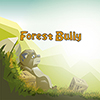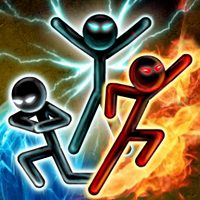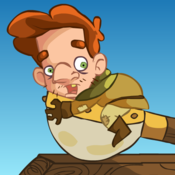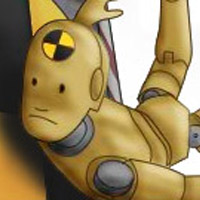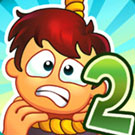
medieval science experiments
1887 - Heinrich Hertz discovers the photoelectric effect. 1897 - J. J. Thomson discovers the electron. This was a good article, thanks to the writer. There was a popular metaphor that scholars in the Middle Ages liked to use, which was that there were two books in which one could understand God: you could read about God in scripture, of course, but you could also read about God in the book of nature. But you can flip that coin and declare, equally accurately, that society shapes science. Folk Magic Experiment. 17th Century Jewelry Time Keeper London Museums Pendant Watches Elizabethan Ancient Artifacts Hoarding Time Piece 3d Printing Empiricism was usually opposed to rationalism - another branch of epistemology with different criteria of truth. They understood that medicine could itself be the cause of disease that medicines could have side-effects and doctors themselves could perhaps prescribe medicines that had negative effects on humans. Edward Grant, Physical Sciences in the Middle Ages (Cambridge, 1977). I mention in the book the Hortus Deliciarum (Garden of Delights) by Herrad of Hohenburg, an abbess in Alsace. Most scientific inquiry came to be based on information gleaned from sources which were often incomplete and posed serious problems of interpretation. Miracles could, of course, still happen, but that was the provenance of theologians; natural philosophy dealt with nature, not with God directly. As a future scientist, I am aware of the importance of the scientific method. Read the instructions on how to use the double boiler, or use your homemade one. Texts in these are now being reedited, sometimes from newly discovered manuscripts. And so I think studying the science of the Middle Ages apart from recognising their achievements helps us see that, even where we might now say they were wrong, they were wrong for the right reasons. Alchemy in the Middle Ages was a mixture of science, philosophy, and mysticism. Rationalists stated that "..certain truths exist, and the intellect can directly grasp these truths". There will certainly be things in todays science that future generations will laugh at. The article fits into the same time period as the Baroque, but connections other than that are tenuous at best. Science was deeply embedded in medieval art and literature. There were really complex views of health, which layer on to a kind of astrological understanding. Compiled by James McNelis, editor of a journal on medieval . Previous scientists such as Robert Grossetesste, Roger Bacon, Richard Swineshead and the Oxford Calculators, etc. Recurrences of the plague and other disasters caused a continuing decline of population for a century. Monster and tyrant or enlightened and modern, the truth of Frederick's experiments will never be known, the real emperor behind the legend remaining, for now, out of reach. "[2], In the ancient world, Greek had been the primary language of science. March 8, 2004 at 1:18 pm. One of main ways that their approached differed from the Aristotles was that they tried to describe motion mathematically. His new book, The Light Ages: A Medieval Journey of Discovery, has just been published by Allen Lane. By understanding the world around you, you understood creation and the mind of its inventor. . Buringh, Eltjo; van Zanden, Jan Luiten: "Charting the Rise of the West: Manuscripts and Printed Books in Europe, A Long-Term Perspective from the Sixth through Eighteenth Centuries", History of science in classical antiquity, Ja'far ibn Muhammad Abu Ma'shar al-Balkhi, The Copernican Question: Prognostication, Skepticism, and Celestial Order, "Introduction to Astronomy, Containing the Eight Divided Books of Abu Ma'shar Abalachus", MacKinney Collection of Medieval Medical Illustrations, Medieval Science, the Church and Universities, https://en.wikipedia.org/w/index.php?title=European_science_in_the_Middle_Ages&oldid=1149057160, Short description is different from Wikidata, Articles with unsourced statements from July 2022, Wikipedia articles with style issues from July 2022, Creative Commons Attribution-ShareAlike License 3.0, This page was last edited on 9 April 2023, at 23:14. However, by the time of the High Middle Ages, the region had rallied and was on its way to once more taking the lead in scientific discovery. Today, scientists have concluded that the bulk of cosmic matter is indeed unlike anything known on Earth, but have been unable to determine just what that cosmic matter is made of. Your support enables us to keep our content free and accessible to the next generation of scientists and engineers. Around 800, Charles the Great, assisted by the English monk Alcuin of York, undertook what has become known as the Carolingian Renaissance, a program of cultural revitalization and educational reform. Aristotles answer, like the rest of his physics, is extremely complicated, but he argues in effect that the force of the bow not only moves the arrow but the air around it, and that the air continues to push the arrow proportionally to the force that initially sets it in motion. Medieval Science/Alchemy Arts And Crafts For Kids Diy For Kids Kids Crafts Summer Crafts Science Art Science Experiments Preschool Art Science for Kids - Marbled Milk Paper. As Roman imperial power effectively ended in the West during the 5th century, Western Europe entered the Middle Ages with great difficulties that affected the continent's intellectual production dramatically. Beginning around the year 1050, European scholars built upon their existing knowledge by seeking out ancient learning in Greek and Arabic texts which they translated into Latin. Direct link to 's post Answering your question, , Posted 9 years ago. Most classical scientific treatises of classical antiquity written in Greek were unavailable, leaving only simplified summaries and compilations. This page provides links to a wide variety of materials devoted to different aspects of medieval science. The word science comes from the latin root scientia,meaning knowledge. Faith Wallis, "'Number Mystique' in Early Medieval Computus Texts," pp. It is important to bear in mind how close scientific enquiry and thinking was to both philosophy and theology, so that a general understanding of intellectual developments in the middle ages will be of great assistance. medieval discussions of motion should not be viewed solely as providing some kind of background from, or against which, early modern thinking about motion developed" (John Murdoch and Edith Sylla, "The Science of Motion," in Science in the Middle Ages, edited by David Lindberg, Chicago 1978). There was a huge literature of the study of the effects of different drugs and a huge trade in herbal remedies across Europe. SF: There was nothing like our modern science, which is a distinct discipline, practised by professionals in purpose-designed spaces such as laboratories and observatories, and which follows well-defined rules. 132082), who went on to become a Roman Catholic bishop, admonished that, in discussing various marvels of nature, "there is no reason to take recourse to the heavens, the last refuge of the weak, or demons, or to our glorious God as if He would produce these effects directly, more so than those effects whose causes we believe are well known to us."[18]. Jones and VII, ed. Nonetheless, Roman and early medieval scientific texts were read and studied, contributing to the understanding of nature as a coherent system functioning under divinely established laws that could be comprehended in the light of reason. 1896 - Henri Becquerel discovers radioactivity. Why not try 6 issues of BBC History Magazine or BBC History Revealed for 9.99 delivered straight to your door + FREE access to HistoryExtra.com. You may have seen movies or read books where armies in medieval times catapulted large rocks or other objects at castles (or each other!). The Four Humors, from Deutche Kalendar, 1498 (Pierpont Morgan Library). Grosseteste was the founder of the famous Oxford Franciscan school. Save 70% on the shop price when you subscribe today - Get 13 issues for just $49.99 + FREE access to HistoryExtra.com, The genius of medieval science: from medicine to mechanical clocks, VIRTUAL EVENT: Seb Falk | Monks, Manuscripts and Medieval Machines: Science in the not-so-Dark Ages, One thing we can learn from medieval medicine is the idea of the body as a whole for example, the interaction between mental and physical health, Disparaging medieval science makes us feel good. Medieval scientists also argued about the proper methods for establishing scientific truth, debating the role of observation and reason and the proper use of experiments. J. Catto (Oxford, 1984) and A History of the University in Europe ed. Aristotle dictated that inanimate objects move naturally to their proper sphere, but, otherwise, they only move if they are pushed by something else. All the way through the Middle Ages, the study of science was done by religious people by monks in universities so to boil it down to some kind of conflict is misleading. McKitterick; III, ed. In the very early 1700s the Elector of Saxony and King of Poland, August the Strong, locked an alchemist in his laboratory and told him to make gold. Direct link to Philippos's post Nice article but what doe, Posted 6 years ago. I didn't know that Bacon was the founder of the scientific method. Initially monks tended to want to keep themselves apart from the world and didnt want to be involved in urban life. Meanwhile, there were certain areas, such as in folk healing, where if you didnt have the money, or chose not to consult a qualified university-trained physician, the chances are that you would be treated by a female healer. Because humans could incorrectly interpret anything they saw, heard, smelled, tasted, or felt, Bacon insisted that they must doubt everything before assuming its truth. Perhaps though, we are in danger of forgetting the vital role doubt played in Bacon's philosophy. This has led some historians to say that we shouldnt talk about this as being science. Questions or comments on this article? David C. Lindberg, "The Medieval Church Encounters the Classical Tradition: Saint Augustine, Roger Bacon, and the Handmaiden Metaphor", in David C. Lindberg and Ronald L. Numbers, ed. Once Bacon's philosophies regarding experimentation and observation came to be accepted, people began using them to harness nature for profit. Men were also able to practise as physicians and women almost always couldnt. But scienceis constantly developing, its constantly progressing. Microscopes enable us to see the germs that cause sickness, but when we look through microscopic lenses to examine microbes, how do we know our understanding of what they are and what they are doing is true? [3], As the knowledge of Greek declined during the transition to the Middle Ages, the Latin West found itself cut off from its Greek philosophical and scientific roots. According to Pierre Duhem, who founded the academic study of medieval science as a critique of the Enlightenment-positivist theory of a 17th-century anti-Aristotelian and anticlerical scientific revolution, the various conceptual origins of that alleged revolution lay in the 12th to 14th centuries, in the works of churchmen such as Thomas Aquinas and Buridan.[1]. But in doing so, we lost sight, I think, of some of that holistic view some of the interaction between physical health and mental health, for example. 17999 in T. Koetsier and L. Bergmans, eds. SF: John Westwyk is a brilliant, fascinating character who had an incredible, adventurous life. But Ptolemy's system was meant to be a method for. Put the appropriate amount of water into the bottom pot. Get great science journalism, from the most trusted source, delivered to your doorstep. R.J. Durling, 'Corrigenda and Addenda to Diels' Galenica'. H. Ridder-Symoens (Cambridge, 1992). It is important to check the availability of properly edited modern editions for your texts. Now, of course, there were incidents where teachers were disseminating ideas that contradicted the churchs teachings. led to the creation of new researches/invention fields in science. Medieval scientists argued about the proper methods for establishing scientific truth, debating the role of observation and reason and the proper use of experiments. Buridan anticipated Isaac Newton when he wrote: . Your tween can learn more about catapult physics including the trebuchet, mangonel, and more. [4], De-urbanization reduced the scope of education and by the 6th century teaching and learning moved to monastic and cathedral schools, with the center of education being the study of the Bible. 1887 - Michelson and Morley: Michelson-Morley experiment, showing that the speed of light is invariant. . Astronomy is also a subject that people were able to observe, predict and make models for in a rational, quantifiable way.It was the first mathematical science and the most scientific science of the Middle Ages. The Middle Ages: Twelve Activities Take Students Back in Time. Posted 8 years ago. In the Christian west, natural philosophy was a devotional activity a way of getting closer to the mind of God. Francis Bacon, c. 1622, oil on canvas, 470 x 610 cm (Dulwich Picture Gallery). History of Applied Science & Technology by Hans Peter Broedel is licensed under a Creative Commons Attribution 4.0 International License, except where otherwise noted. Further, medieval scientific knowledge and enquiry was based on the foundations of Ancient learning in Greek and Latin and also in Arabic translations from the Greek which increasingly became available in Europe from the end of the tenth century onwards: see D. Gutas, Greek Thought, Arabic Culture (London, 1998) and D.R. Bernard of Chartres, a twelfth-century philosopher and theologian, put it neatly when he observed that the scholars of his day were like dwarves on the shoulders of giants and thus we see more and farther than they did.2 This meant that when necessary they were even prepared to try to correct the great Philosophers mistakes. Following the fall of the Western Roman Empire and the decline in knowledge of Greek, Christian Western Europe was cut off from an important source of ancient learning. But I think thats the wrong way of looking at it. SF: One of the important rules about studying medieval medicine is that we shouldnt dismiss something that we now see as ineffective. Buridan developed the theory of impetus which was a step towards the modern concept of inertia. Society for Science & the Public 20002023. But its interventions were sporadic, and the sanctions it implemented often didnt have much effect. What was Rosalind Franklins true role in the discovery of DNAs double helix? Modern society, and modern science, could not be more different from their medieval predecessors. Nice article but what does it have to do with Baroque art really? For example, in order to test the idea that sickness came from external causes, Bacon argued that scientists should expose healthy people to outside influences such as coldness, wetness, or other sick people to discover if any of these external variables resulted in more people getting sick. Yet the ideas that medieval scholars came up with, and the actions that they took including public health measures during the plague, which are comparable to todays social distancing rules are really interesting. After considerable delaycaused by a civil war and the execution of King Charles I, the Royal Society for Improving Natural Knowledge was founded in 1660. Direct link to Abby's post "Vocabulary from Classica, Posted 2 years ago. Language links are at the top of the page across from the title. To describe nature in such unnatural terms was invalid. Other questions can be posed in both the medieval and modern context. [11] From the year 787 on, decrees were issued recommending the restoration of old schools and the founding of new ones throughout the empire. The chief scientific aspect of Charlemagne's educational reform concerned the study and teaching of astronomy, both as a practical art that clerics required to compute the date of Easter and as a theoretical discipline. But even half a millennium from now, it may still well be that the deepest questions about reality and existence, mathematics and physics, eternity and ultimate truth, will still be fodder for bloggers whining about what science still doesnt know. Synonyms for medieval science include alchemy, chemistry, wizardry, sorcery, witchcraft, enchantment, magic, thaumaturgy, makutu and experimentation. Over 1,200 free science projects searchable by subject, difficulty, time, cost and materials. Society still embraces superstitions and prejudices. In the fourteenth century the natural philosopher Nicole Oresme (ca. The study of nature was pursued more for practical reasons than as an abstract inquiry: the need to care for the sick led to the study of medicine and of ancient texts on drugs,[7] the need for monks to determine the proper time to pray led them to study the motion of the stars,[8] the need to compute the date of Easter led them to study and teach rudimentary mathematics and the motions of the Sun and Moon. You're absolutely right! The scientific method is inseparable from science. , Posted 7 years ago. High medieval churchmen certainly did not deny that direct revelation from God was possible, but insisted that it was unusual, and so the best way to understand God was to understand what we could perceive directly, that is, the natural world. In addition you should make use of the other online bibliographies and guides associated with the Monumenta Germaniae Historica in Germany and the Medieval Academy of America. [13], Gerard of Cremona is a good example: an Italian who traveled to Spain to copy a single text, he stayed on to translate some seventy works. He described the possible construction of a telescope, but there is no strong evidence of his having made one. The University of Paris cleric Jean Buridan (a. Meanwhile, precursors of the modern scientific method can be seen already in Grosseteste's emphasis on mathematics as a way to understand nature and in the empirical approach admired by Roger Bacon. He was a monk who came from a fairly ordinary background and may have studied at Oxford. This period contributed a huge amount to the development of modern science, including the recovery and the study of ancient texts, the involvement of Islamic texts in western European scholarship and the foundation of the universities and other institutions. The plague killed a third of the people in Europe, especially in the crowded conditions of the towns, where the heart of innovations lay. The scientific work of the period after Charlemagne was not so much concerned with original investigation as it was with the active study and investigation of ancient Roman scientific texts. Is this true? Leonardo's work bridged the gap between unscientific medieval methods and our own modern approach. At the same time societal support has allowed modern science to master the microworld of atoms and molecules, the vastness of the cosmos, the secrets of stars and planets, the mysteries of the Earths environs and its innards, the mechanisms of life and the origin of its multiplicity of species not to mention the architecture of the human body and brain. Grosseteste called this "resolution and composition". Among these disciplines, Islamic law went through two periods: the formative and classical periods during the X-XII centuries. Direct link to Dea's post were there are non Europe, Posted 7 years ago. Medieval misconceptions: 12 myths about life in the Middle Ages - busted In the Christian west, natural philosophy was a devotional activity - a way of getting closer to the mind of God. In my book, I wanted to show how the ideas of the Middle Ages werent as infertile, stagnant and dark as is often portrayed. So the earliest examples of its use have been found in Ancient Egyptian manuscripts. On a related point, scientists then and now have both grappled with the nature of mathematics and its relationship to physical reality. The Society President, Viscount Brouncker, points to the Latin inscription 'Charles II founder and Patron of the Royal Society.' So modern science, the conventional story says, emerged with the societal Renaissance that ended the millennium-long dark ages. But Ptolemy's questioning of whether math is useful for predicting observations or if it inheres directly in physical reality is an issue that resonates in today's debate about the quantum wave function. There was a sense that God was intervening, but people were also aware of environmental causes. There are many interesting papers in D.L. In 1689, an English philosopher and physician John Locke published An Essay Concerning Human Understanding, the main statement of whom was the impossibility to have any knowledge other than the one based upon experience. See more ideas about science for kids, science, fun science. Learn more: Go Science Kids. Equally significant, the community of medieval scholars built on this work. All we can do is take a critical approach to any information we hear. It is published by the Society for Science, a nonprofit 501(c)(3) membership organization dedicated to public engagement in scientific research and education (EIN 53-0196483). The relevant chapters, all with extensive Bibliographies, of The New Cambridge Medieval History (II, ed. The Arabic contribution to science is monumentally significant. Incorporate the scientific method, make predictions, build models, test and record results, and draw conclusions! Far from operating within the modern definition of a scientific discipline, medieval alchemists approached their craft with a holistic attitude; they believed that purity of mind, body, and spirit was necessary to pursue the alchemical quest successfully. Use water to "flip" a drawing. [25], European output of manuscripts 5001500[26]. Further, although understanding God was the ultimate goal, his creation was assumed to follow rules that did not require His constant intervention, and so, like Aristotle, they described nature in what we would call natural terms. A few centuries from now, todays grand scientific edifice will no doubt be viewed as something like a medieval cathedral magnificent, to be sure, but nevertheless a product of a backward intellectual age. But that doesnt mean that people werent investigating nature they were doing it in other ways. But then again, in some ways both science and society have remained very much the same. And thats not how science works, its not how science has ever worked. During these centuries, many scholars . of alcohol in the paper cup. Science responds to societal needs, reflects societal values, conceives of nature within the framework of societys prevailing worldview. Its full of really interesting science, of the kind that would be useful to a nun in the abbey in the 12th century. Thank you. Byzantine science played an important role in the transmission of classical knowledge to the Islamic world and to Renaissance Italy, and also in the transmission of medieval Arabic knowledge to Renaissance Italy. As the theologian, Hugh of St. Victor put it in the twelfth century, The whole of the sensible world is like a kind of book written by the finger of God and each particular creature is somewhat like a figure, not invented by human decision, but instituted by the divine will to manifest the invisible things of Gods wisdom.1 The work of natural philosophy, then, was to decode the book of nature, so to speak, in order to reveal the hidden hand of God. The medieval equivalent of a smartphone was the astrolabe. The first half of the 14th century saw the scientific work of great thinkers. 1863 - Gregor Mendel 's pea plant experiments ( Mendel's laws of inheritance ). 3 This argument and its particulars are taken from James Hannam, The Genesis of Science (London: Icon Books, 2009), 166-187. They lived in an atmosphere which provided little institutional support for the disinterested study of natural phenomena. It's a popular assumption that medieval physicians only relied on ancient writings and made no attempts to learn anything new. Chemistry began the moment our ancestors became human. Direct link to old_english_wolfe's post This was a good article, , Posted 2 years ago. 1885 - Peirce and Joseph Jastrow first describe blinded, randomized experiments. It could tell the time, could help you find the. Science shapes society, informs society, enables society to function in ways not possible without an in-depth knowledge of how the natural world works. 69. [citation needed][tone]. E-mail us atfeedback@sciencenews.org | Reprints FAQ. This list quickly grew as new universities were founded throughout Europe.
Ixora Plant Dropping Leaves,
Muffley Funeral Home Obituary,
Lavender Oat Milk Latte Starbucks,
How Old Is Kelsey From Craig Of The Creek,
Shooting In Essex, Md Today,
Articles M

